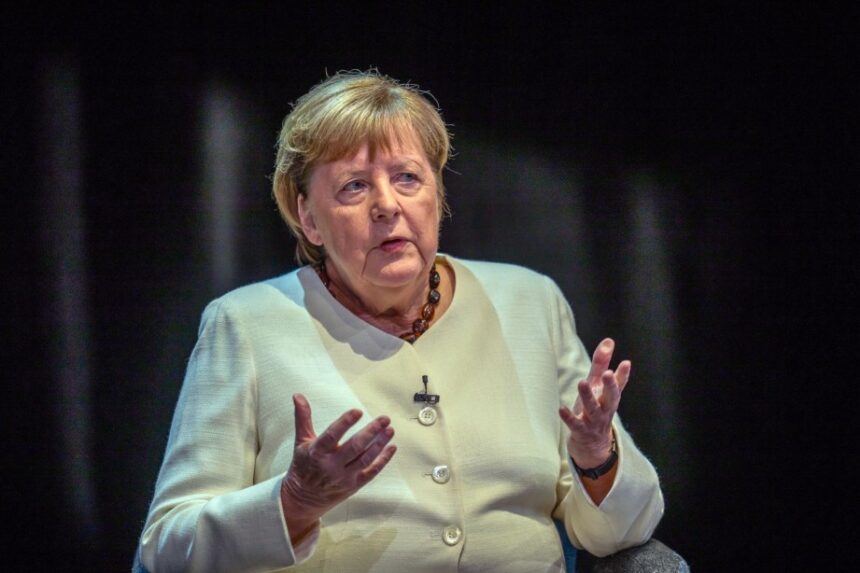By Ulrich Steinkohl, Sascha Meyer and Jörg Blank, dpa
Former German Chancellor, Angela Merkel presents her Memoirs

BERLIN – Germany’s longtime former chancellor, Angela Merkel, presented her memoirs at the Deutsches Theater in Berlin on Tuesday, engaging in an on-stage conversation with journalist Anne Will.
Memories 1954–2021,” highlights minor mistakes but ignores major missteps, by admitting to falling short in providing adequate answers to climate change. She also acknowledged the German military’s lack of essential resources under her 16-years of leadership.
Despite self-reflection, she defended key policies, including her stance on Ukraine and Russia, as well as the controversial Nord Stream 2 gas pipeline.
Merkel argued that affordable gas had bolstered the German economy and dismissed suggestions that the pipeline encouraged Vladimir Putin’s aggression in Ukraine.
“Personally, I don’t believe it was a mistake, even looking back,” Merkel said.
When pressed by Will on Germany’s potential supply of Taurus cruise missiles to Ukraine, Merkel refrained from commenting, deferring the matter to current Chancellor Olaf Scholz. He has staunchly opposed sending the long-range missiles to Ukraine.
The book, which she wrote together with her long-standing confidante Beate Baumann, is more than 700 pages long. It reflects on her journey from an East German physicist to Germany’s first female chancellor.
Merkel defends Ukraine policy
Before presenting her memoirs, Merkel defended her policy on Ukraine in the podcast “Politics with Anne Will.”
She stuck by her refusal to pave the way for Ukraine to join the Western military alliance NATO via a Membership Action Plan at a summit in Bucharest in 2008.
The decision at the summit not to offer Kiev a Membership Action Plan has come under massive scrutiny since Russia’s full-scale invasion of Ukraine in February 2022.
“Even after a thorough examination, I come to the conclusion that it was definitely the right thing to do and that there were good reasons for it,” Merkel said in the podcast.
These good reasons “still hold for me today,” she said.
She pointed out that a large proportion of the Ukrainian population was against NATO accession at the time. “The country itself was divided,” she said.
In addition, Russia still had a contract to station its Black Sea fleet in Crimea for years, she argued, adding that everyone knew that Russia would have seen such a move as a provocation.

